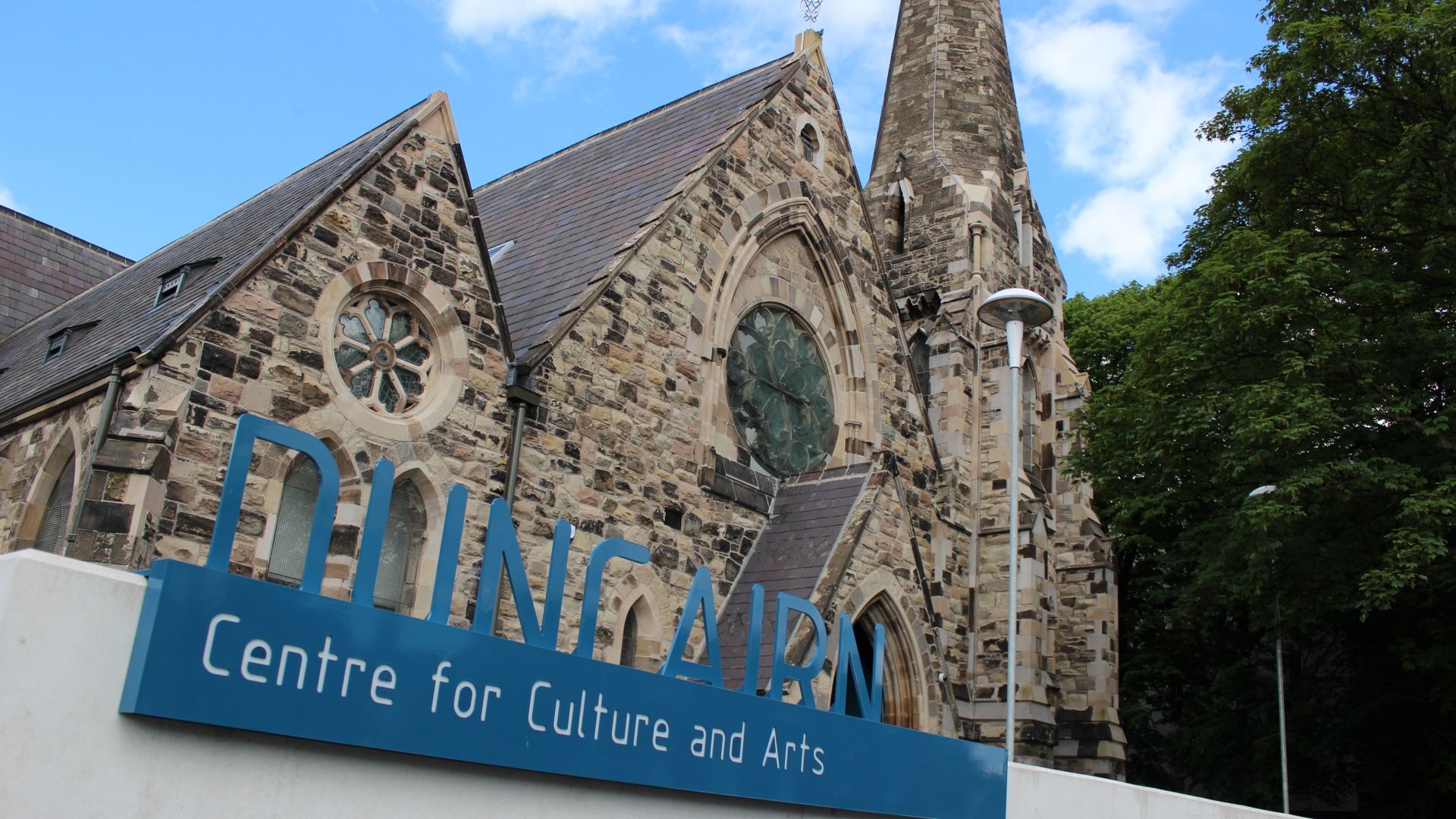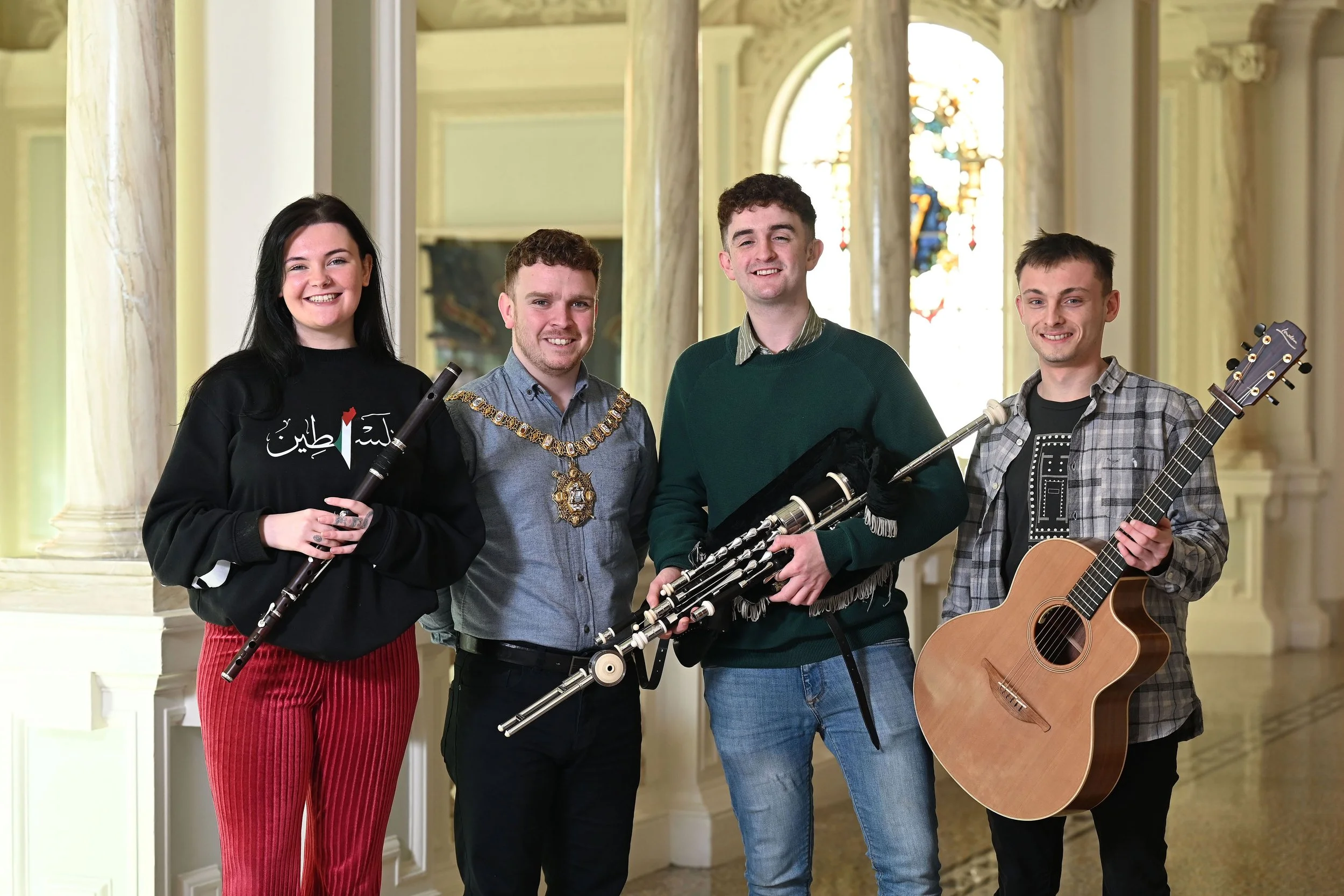Meet the Artist: Scott McKendry
Scott McKendry is a published poet from North Belfast. He is also a Lecturer at Queen’s University Belfast, teaching Irish poetry and creative writing. He is sharing with us his life experience and how sudden events led him to become a poet. We especially like him for his commitment to bringing the working-class experience into academia and contemporary literature, and to getting the local community involved in writing.
How did you become a poet?
I used to think that my Protestant upbringing was without ‘High’ culture. Thinking back, I realised this wasn’t the case at all. My paternal grandfather, who died when I was 6, would take me to the library and buy me books. After retiring from his job as a hole-driller in the Shipyard, he went and got his GCSEs. He had some short stories published in writing group anthologies, self-published efforts. But we knew he was good. He died of asbestosis before he had the chance to go to university and develop his writing. I suppose that’s all culture enough. I had uncles who read and were into music (the Beatles, Paddy Reilly, Roxy Music), and debating with them about history and politics and being immersed in their interests and that, I suppose this brought me to poetry.
I started writing seriously around 2011, after being made redundant from my job as an electrician. I filed for bankruptcy and lost my house. My girlfriend left me around the same time, and my best friend moved away to New York. I was back in my mother’s attic. There was a freedom in that. I was skint but happy. I was bottled at 3am on Ormeau Bridge around that time; a random attack for which I got a few stitches above my eye. (I didn’t realise until a few years ago how mental that all sounds. I was getting panic attacks and it all came out to this big lump of a counsellor fella (really nice guy). He was eating a Breakaway at the time and he said, ‘That’s probably a lot.’) It was, I suppose, a bad year. With no A Levels, I started an access to university course at Belfast Metropolitan College. For a while, I had no idea what I would study. Eventually, I considered Philosophy or English with Creative Writing. I chose the latter.
Where do you find inspiration?
I grew up in lower-working-class Loyalist North Belfast. My upbringing was fairly typical, or maybe stereotypical is the word I’m after: similar to what most people guess those places are like. But, Those Places, and especially my particular places (the Shankill Estate and Ballysillan) and the people who inhabited and inhabit it, are and were much more besides. Very funny people, quick-witted, extremely knowledgeable and also utterly imprudent, sceptical and rash. Perhaps our problem in Belfast is that we have integrity, far too much integrity. There were all the usual trappings: gunmen, bonfires, marching bands, rioting. And latterly, feuds and urban warlords. We were skint but the kids got spoilt. This was the backdrop, but things like that are more normal for large swathes of the Earth’s population than we tend to recognise – and very few of them are lucky enough to live in northwestern Europe. This is to say, I’ve been lucky in my life. I find inspiration from the grievance of being from a place like this, from the lives and voices of Lumpen-Prole society across Belfast – as well as from Swift, Kavanagh, McGuckian, Flynn et al.
My friend Susan McKay asked me once why I write; I said it’s probably about control. Poetry gives me control of language at a granular level, or an entry into it via text. I like to control the sounds and the rhythms. I hate my handwriting and have always been acutely aware of my thick Belfast accent; indeed, aware of everyone’s accent, and highly attuned to the class aspect of accent – how people change their accents, which I now know is a survival tactic and not some kind of phonetic treason. I suppose there’s a kind of reverse snobbery going on in that. And I also suppose that I take that from my maternal grandfather, who died long before I was born, but instilled in our family a certain social consciousness. I recently found out he was Head of Central branch of the Northern Ireland Communist Party in 1959, which couldn’t have been prudent during the Cold War and in the North and in the Greater Shankill Loyalist area where he lived. He wrote as well.
His wife, who died two years ago at 92, my Granny Ria – I suppose I got from her a taste for decadent things. I like nice grub and I love to cook. Maybe I took her compulsiveness as well. When my grandfather died in the 1970s, she was worried about his Marxist material getting into the hands of their sons, so she lit a small fire in the yard and burned everything (all of his own writing included, both political and poetic), except his Bible and his Complete Works of Shakespeare, which I now have.
GUB - Book cover
How does your creative process work?
I have no notable writing habits or processes. Unless I’m working on one at any moment, I can never remember where or when I wrote a poem, though sometimes I remember what I was reading/seeing which inspired it. I just seem to end up with them on my hard drive. I’m not sure I love it, but I get peace when in the middle of it. I’m not sure there’s anything urgent in art at the moment. I resisted, for a long time, the notion that we don’t really know what’s good until the person who made it is long dead, but I’m warming to it. I think it’s always been crucial to be able to find new emotions in art: like if you see or read something and it hits you like a smell you’ve never smelled before? I like kitschy stuff. I saw a cartoonish drawing of houses (like a cramped housing estate) at an exhibition in the Ulster Museum the other week and I loved that. It was already sold, with the wee red dot on it, for like 3 grand. I didn't love it that much.
Tell us about your book GUB.
I’m not sure how much I can say about GUB. The first poem in the book was written in 2015, so it was almost a decade in the making. This makes me feel like I’m trying to say ‘I worked so hard on this book’ but it was made from fragments, individual poems, published all over. I suppose I like to think that the language stuff in there – the phonetic orthography Eejit – is in some way new? Anyway, this is enough rambling…!
His latest book is a collection of poems and you can find it on sale at the Duncairn shop.






